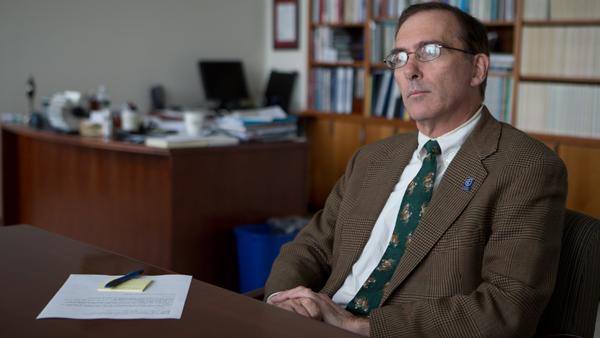I’d like to take this opportunity to clear the misapprehension that surrounds the new policy for interactions between student media and representatives of the Ithaca College administration.
As I wrote to the student media in announcing the policy, it is strictly limited to situations in which they wish to interview a member of the Ithaca College leadership team, defined as members of the Administrative Assembly, about college policies or developments. The procedure for speaking with all faculty members, all students, all third parties and all staff who are not in Administrative Assembly remains unchanged — they can simply be contacted directly.
If the interview topic is not related to college policies or developments, administrators may also be contacted directly. Additionally, media may contact anyone directly on urgent or breaking news; I only ask that they acknowledge to their prospective interviewee that they have not gone through our media relations office.
Finally, the policy does not apply to students working on class projects, an exclusion intended to protect academic freedom. As always, we ask students to be judicious in making interview requests in these instances and to take into account the fact that administrators may not be immediately available to respond to inquiries.
Why did I deem this policy necessary in the first place? Media relations offices have been developed in organizations of all kinds to help journalists navigate to the source(s) best able to provide the specific information they are looking for. Our media relations office, headed by Dave Maley, has done this job effectively for external media outlets for years. For student reporters, just as for the professional journalists at the Ithaca Journal or The New York Times, a media relations contact facilitates getting the information and quotes one needs for a story.
The “system” this replaces is one in which student reporters tended to focus their interview requests on the president and vice presidents for many stories in which other individuals might be better positioned to comment. The volume of requests flowing into a few offices at times detracted from our ability to focus on our actual jobs. By pointing student journalists in the right direction to begin with, the media relations office can help match up reporters and appropriate sources in a timely fashion.
I have let the media know that they should tell us if they find that the policy is preventing them from obtaining reasonable access to IC administrators. If that occurs, we will tweak the policy to fix any unanticipated problems.
Contrary to claims that some have made, neither in intent nor in application will this policy lead to censorship or a reduction in the number or variety of Ithaca College “voices” in news stories. I anticipate that there will be an increase in the range of IC voices in news stories, since the media relations office is more knowledgeable about IC’s organizational structure than reporters — student or independent — could possibly be.
Our student media will have the same access to administrators that non-affiliated outlets have always enjoyed. I am proud of the work that our student journalists do on a daily basis, and this policy should in no way hinder them in continuing to learn and practice their craft.
Tom Rochon is the president of Ithaca College. Email him at [email protected].








